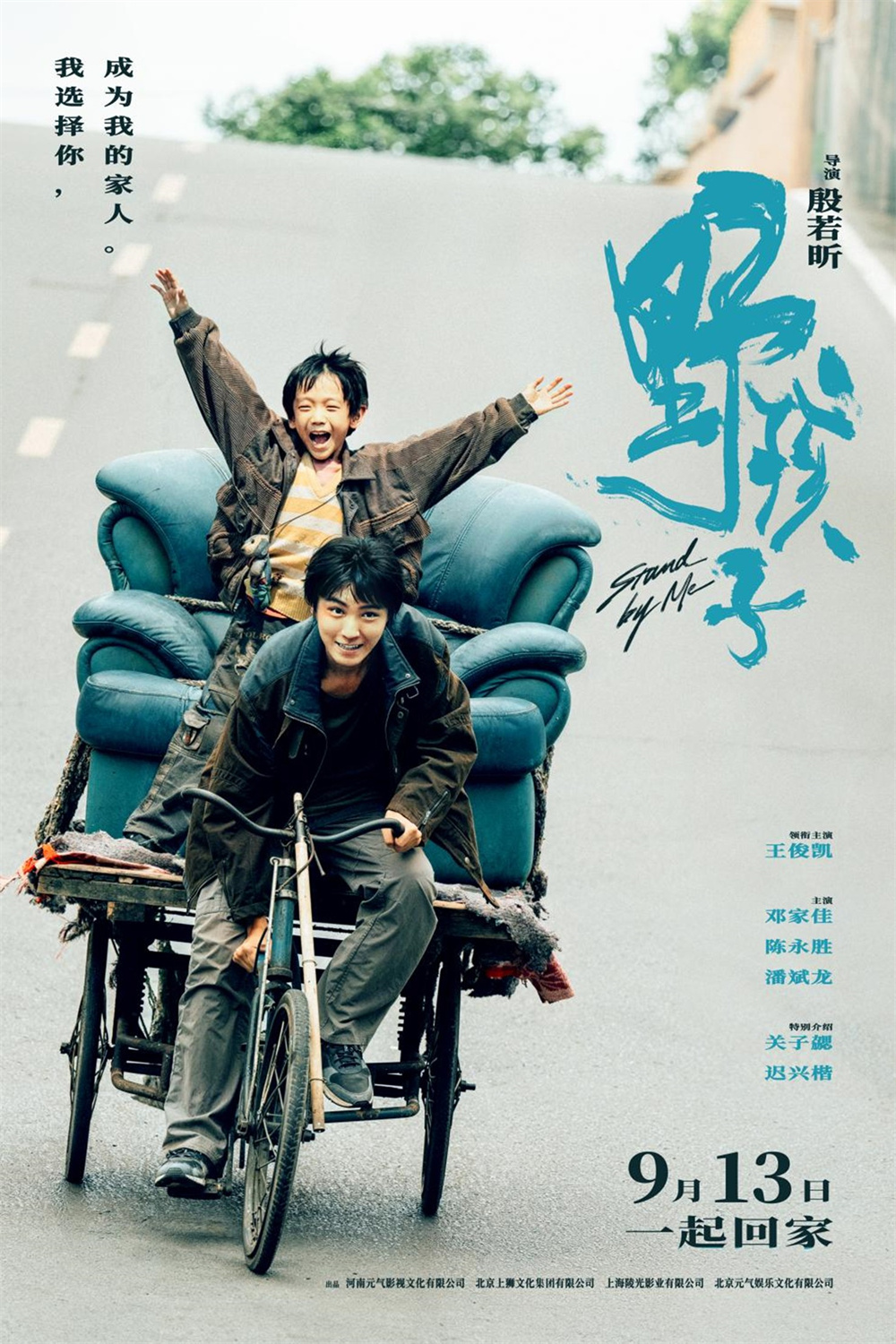
Note: This article contains spoilers
“Wild Children” is the new work of director Yin Ruoxin following the critically acclaimed film “My Sister.” Interestingly, while “My Sister” centers on the emotional bond between a sister and her brother, “Wild Children” focuses on the emotional connection between “thief” older brother Ma Liang (played by Wang Junkai) and “orphan” younger brother Li Mingxuan (played by Guan Zixie), who are not related by blood. One could say that “Wild Children” is a focus on different social issues, akin to “My Brother.”

Poster for “Wild Children”
“Wild Children” is based on the true story of “wandering brothers.” In this case, a pair of non-biological brothers—21-year-old Ma Liang and 8-year-old Xuan Xuan—wandered outside due to family issues and relied on each other for over a year. Ma Liang maintains their livelihood through theft, while Xuan Xuan assists in disposing of the stolen goods. Although they live in difficult conditions, their mutual care showcases a profound friendship that transcends blood ties. Once the story came to light, it garnered widespread attention.
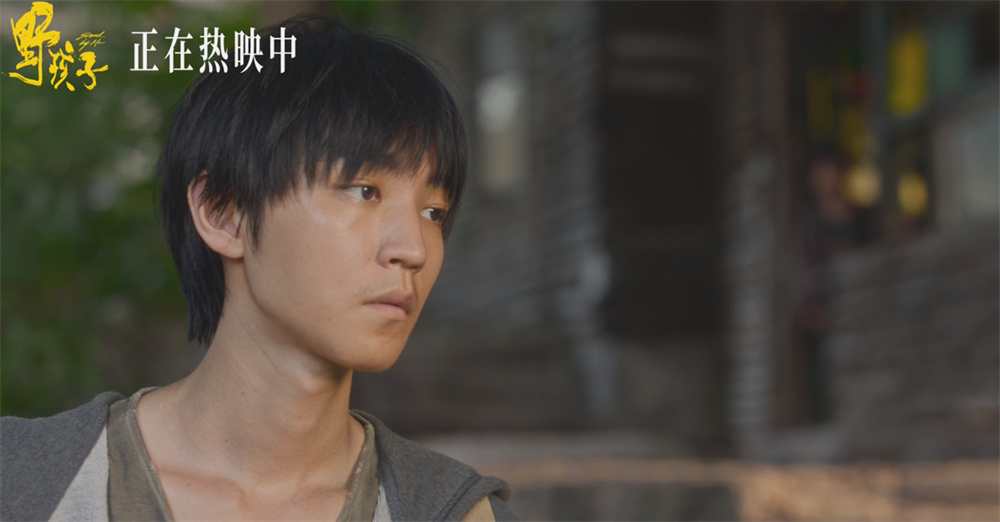
Ma Liang (played by Wang Junkai)
Thus, “Wild Children” inherently carries a realist gene, as the film addresses the issue of “socially disadvantaged children.” This term refers to children who face challenges in life, education, and healthcare due to factors like their family's financial situation, family structure, health status, or social environment. The film primarily focuses on “de facto orphans,” a subgroup of socially disadvantaged children, who still have at least one parent but receive inadequate care and nurturing for a variety of reasons.
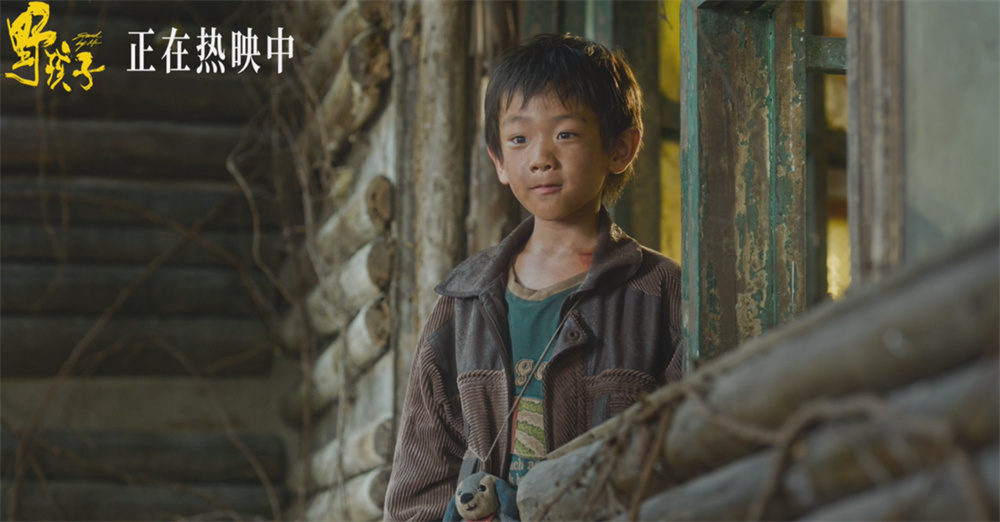
Xuan Xuan (played by Guan Zixie)
The film attributes the existence of de facto orphans largely to the phenomenon of “giving birth but not raising”—where parents, although they have given birth to children, fail to fulfill their nurturing responsibilities, whether materially or emotionally.
For instance, Xuan Xuan's parents had him at a young age and subsequently left him with his grandfather, who earned a living by scavenging. His grandmother is bedridden due to illness, and his grandfather suffers from alcoholism, showing no responsibility towards raising Xuan Xuan. Even when Xuan Xuan left home with Ma Liang for an extended period, his grandfather never attempted to look for him; similarly, Xuan Xuan’s uncle also neglected his care, abandoning their even younger cousin to the grandfather...
“Wild Children” explicitly and sharply unveils the “predicament” faced by de facto orphans like Xuan Xuan. They encounter not only material deprivation and emotional loneliness—such as Xuan Xuan often struggling to eat enough, facing bullying from peers, and even being beaten by his drunk grandfather—but deeper issues lie in their lack of discipline, which might lead them down a wrong path in the future.
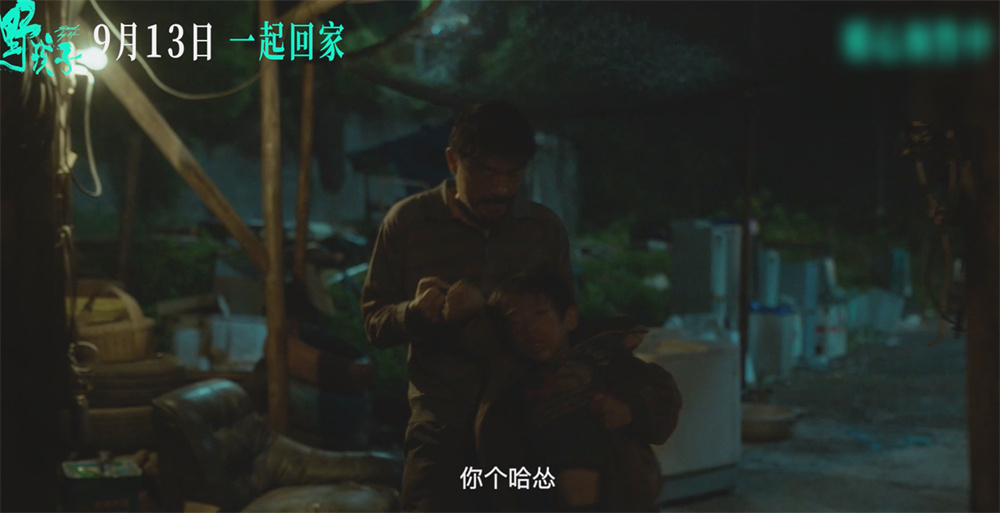
Xuan Xuan being violently beaten by his grandfather
In the film, Guan Zixie’s portrayal of Xuan Xuan is vibrant, retaining childlike innocence while also displaying a maturity and talent beyond his years, with several emotional outburst scenes being quite moving. However, feedback from audiences reveals that many find Xuan Xuan “unlikable.” Indeed, he is not the stereotypical “good child” often seen in tragic dramas; despite being a de facto orphan, he is bright, sensible, kind, and upright. Conversely, though he shares a profound emotional bond with Ma Liang, Xuan Xuan is actually a child who might easily “turn bad.” Certain scenes concerning Xuan Xuan in the film provoke chilling thoughts upon reflection.
For example, when Xuan Xuan goes out to play in public alone, he gets into two conflicts with other children—first snatching an ice cream from a child, and another time arguing during a game, where he fails to communicate kindly and rather “maliciously” splashes water on others... This behavior paints him as the type of “problem child” that parents fear.
These actions reflect Xuan Xuan’s unfamiliarity with social interaction rules and his lack of emotional management skills. Children require stable emotional support to develop healthy self-awareness and social skills, but as a de facto orphan, Xuan Xuan lacks such support and proper guidance, leading him to respond to conflicts and setbacks impulsively and negatively.
Furthermore, although Ma Liang repeatedly instructs Xuan Xuan not to steal, Xuan Xuan often steals items he likes from supermarkets and other places.
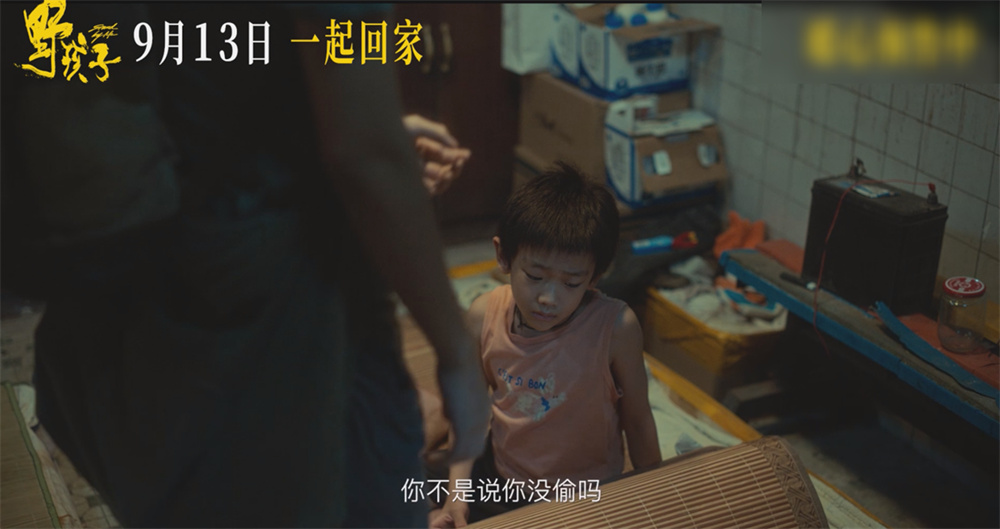
Xuan Xuan also steals
This also reflects how, as a de facto orphan, Xuan Xuan’s growth environment lacks sufficient positive role models and continuous behavioral education, compounded by material deprivation, has made it difficult for him to make correct judgments when confronted with temptations or pressures. While Ma Liang tries his best to teach him, he is limited by existing resources and faced with numerous life challenges, making it hard for him to provide adequate supervision and guidance.
Being a de facto orphan itself is a severe test of fate, and yet these unfortunate children are more likely to stray off course as they grow up, engaging in behavior deviations, and possibly violating rules and laws. The second half of “Wild Children” spends considerable time depicting adults like Da Mao (played by Chen Yongsheng) who represent grown-up socially disadvantaged children, with the intention of revealing this point.
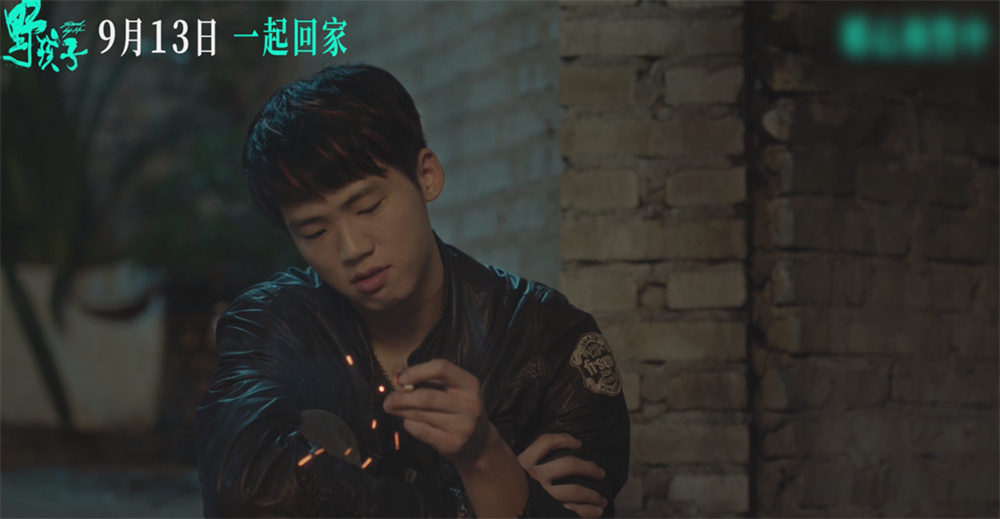
Da Mao (played by Chen Yongsheng)
Adults like Da Mao have already embarked on a path of crime; they rob on the streets, vandalize cars, and illegally break into homes to steal. There are many children in this gang like Xuan Xuan, either stealing or pretending to be disabled to beg for scams, reducing themselves to tools for illegal profit and very likely becoming the next Ma Liang or Da Mao.
Overall, when it comes to presenting the issue of socially disadvantaged children, “Wild Children” effectively fulfills its mission, truly helping to draw more attention to this vulnerable group.
However, this alone is not sufficient to ensure the film’s box office success, just as “My Sister” was not a hit solely because it raised the issue of gender discrimination; the crux lies in whether the film has emotional tension and how effectively it can engage the audience's emotions and resonate with them.
“Wild Children” chooses to depict the brotherly bond between Ma Liang and Xuan Xuan—deep familial affection despite being in a predicament, and their mutual support and growth in adversity—this secure connection also highlights the original news story's “tear-jerking” moment.
Regrettably, the film lacks persuasiveness in establishing this crucial bond.
On one hand, Ma Liang’s determination not to abandon Xuan Xuan and his decision to get off the already-moving bus occurs roughly a quarter way into the film; however, due to the previously minimal interaction, or even the cold distance Ma Liang had shown towards Xuan Xuan, Ma Liang's sudden display of concern for Xuan Xuan without a clear triggering event or emotional catalyst inevitably leaves the audience puzzled.
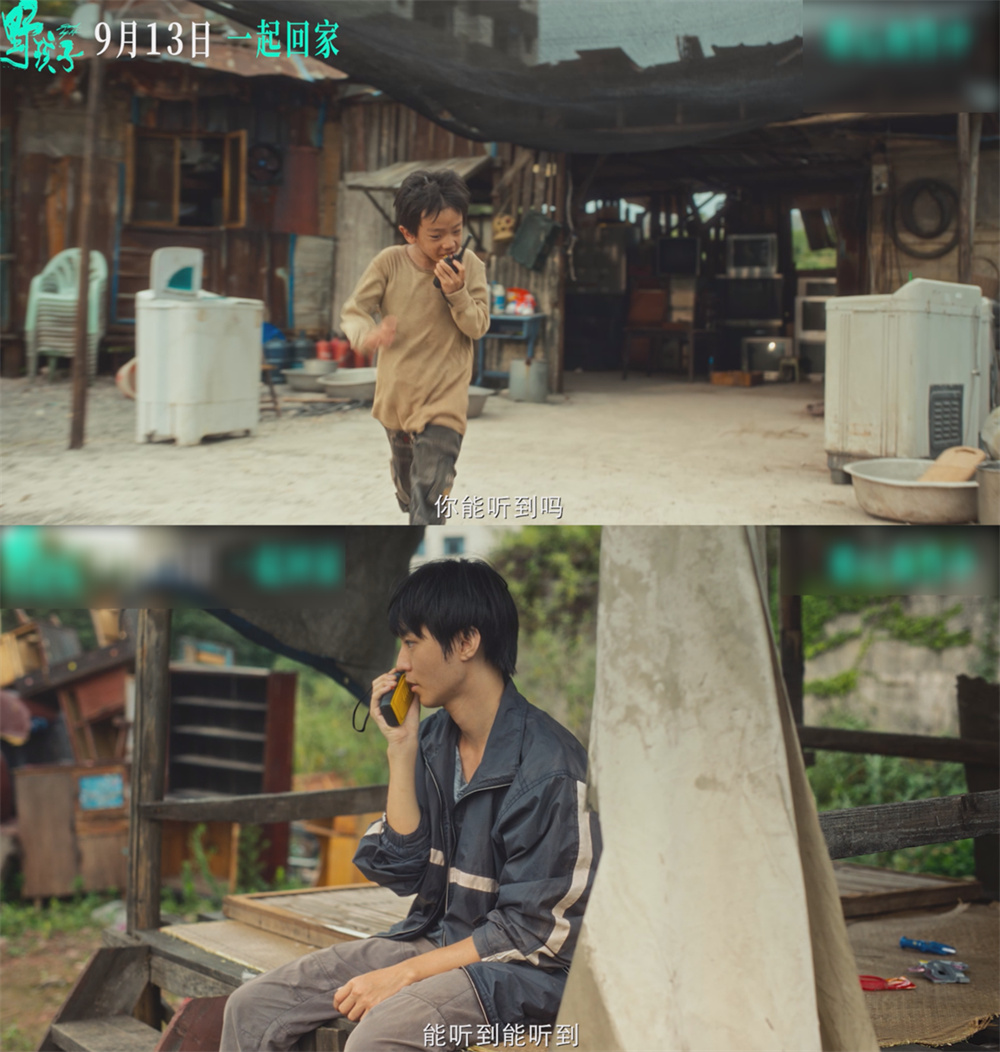
Ma Liang and Xuan Xuan begin to establish their brotherhood
This significant emotional transition demands a reasonable transition and explanation, such as shared experiences, mutual understanding, and support (the film quickly glances through their shared stealing experiences through flashbacks), or a deeper personal awakening (rather than just the simplistic use of the walkie-talkie prop) to gradually establish an emotional connection between them.
On the other hand, the portrayal of character personalities is a key factor affecting the persuasive establishment of emotional bonds. The film completely lacks an explanation of how Ma Liang became the person who lives by stealing. Since the initial characterization of Ma Liang does not include much gentleness, care, or a sense of responsibility, his expression of concern for Xuan Xuan and willingness to take on the burden of caring for him (while Ma Liang himself is still struggling to survive) feels rather abrupt, lacking authenticity and emotional impact.
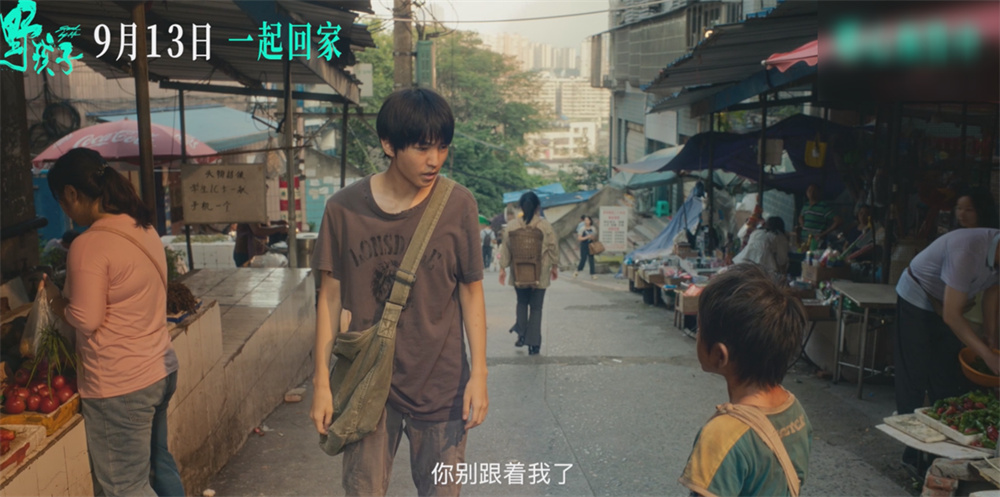
Ma Liang is initially quite resistant towards Xuan Xuan
Merely explaining that Ma Liang wishes to support Xuan Xuan “because he himself has been through the rain and wants to hold an umbrella for Xuan Xuan” is inadequate. Many grown-up socially disadvantaged children have also walked in the rain, yet they choose to harm others and break others' umbrellas. How Ma Liang overcomes human weaknesses and environmental shortcomings to support Xuan Xuan requires a more complete and convincing logical chain.
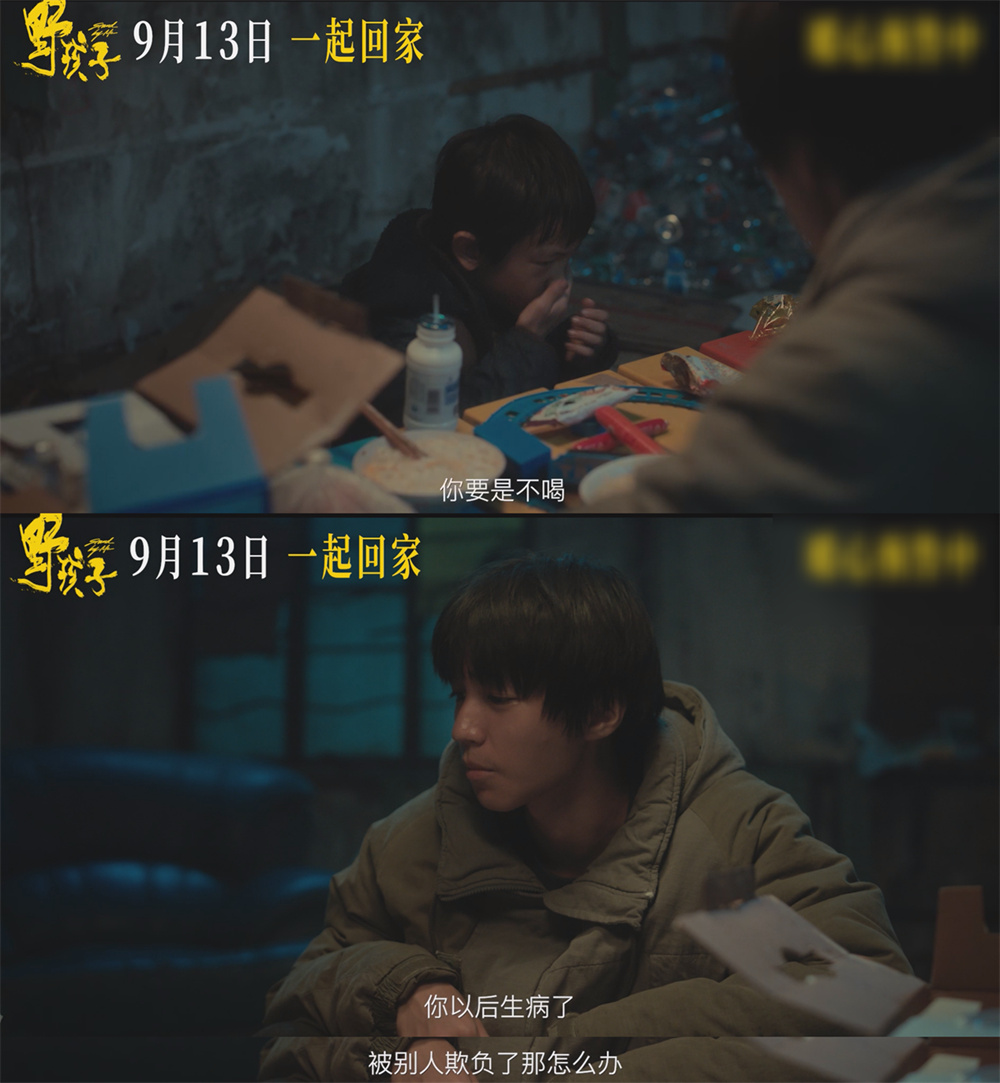
After Xuan Xuan suffers from malnutrition, Ma Liang buys milk and insists he drinks some every day
The emotional tension in “My Sister” stems not only from the bond between the sister and brother (the transition from the sister’s initial resentment to her gradual acceptance is quite believable) but also from the sister's final dilemma, which is compelling enough to draw most viewers into the story—if faced with the same crisis, how would we choose? Which should we give up, self or family?
In addition to the emotional bond between Ma Liang and Xuan Xuan, “Wild Children” possesses a powerful emotional core. It doesn't just present the issue of socially disadvantaged children; it goes further to question why these children find themselves in such predicaments.
Criticizing “giving birth but not raising” is merely the surface of the issue; in reality, many socially disadvantaged children are not solely a result of negligence in nurturing but rather come from families below the local minimum living standard, unable to meet basic needs such as food, housing, and clothing.
Even though “giving birth but not raising” is not uncommon, does society have a safety net mechanism, such as welfare subsidies and public services, to provide necessary assistance to families and children in distress? Where is the intervention from laws and policies? This should include, but is not limited to, the formulation of relevant laws and policies, provision of social welfare services, and establishment of guardianship systems to protect these children's rights.
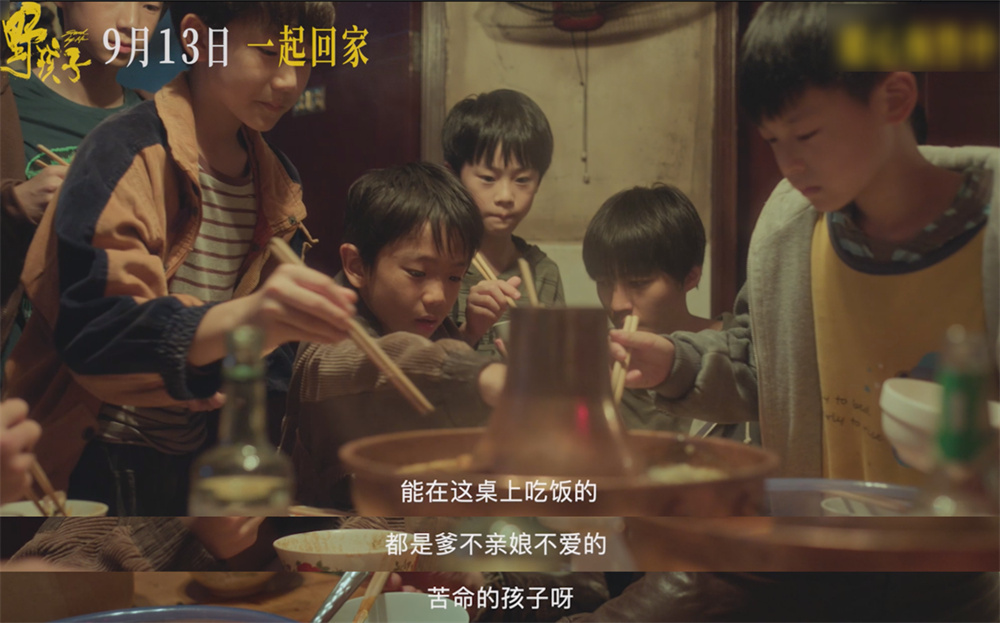
“Suffering children” need more care from society
A particularly emotional moment in the film is when Ma Liang sings an old nursery rhyme to the ailing Xuan Xuan—this was a song his mother used to sing to him, “Luo Luo noodle, oil bun, pork fan, honey jar, my baby is a lucky egg! Born in fortune, grow in fortune, enjoying blessings from a young age.” The beautiful vision in the innocent nursery rhyme starkly contrasts with the deprivation and suffering faced by socially disadvantaged children, reflecting on social inequalities in resource distribution and the insufficient protection of children's welfare, creating a moment that blends warmth with irony.
If these issues are deemed unsuitable for deep exploration in a film, the movie could still place the audience in a moral dilemma—how should we view these nonconforming “wild children”? They are the thieves or robbers we detest and fear in our daily lives, yet they are also discarded and forgotten members of a socially disadvantaged group. How should we judge them? What can we do?
The film fails to seize this opportunity well. The creators’ sympathy for the plight of wild children morphs into a somewhat uncontrolled “sentimentality” at the end, making the delinquent youth appear emotional and humane, contrasting sharply with their previous criminal behavior. When the film makes a moral judgment for the audience, the truth gets lost amid tears and sentimentality.


